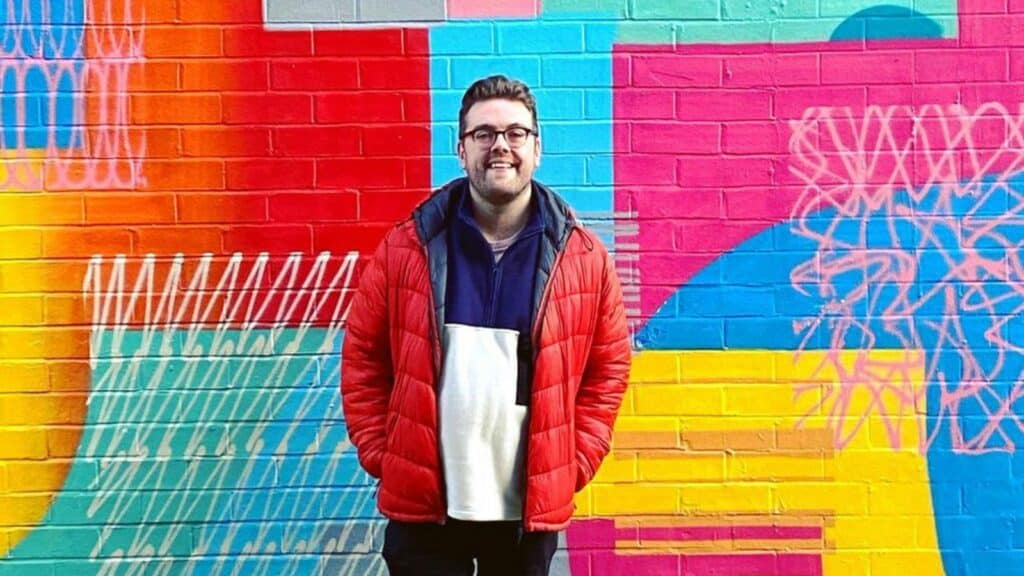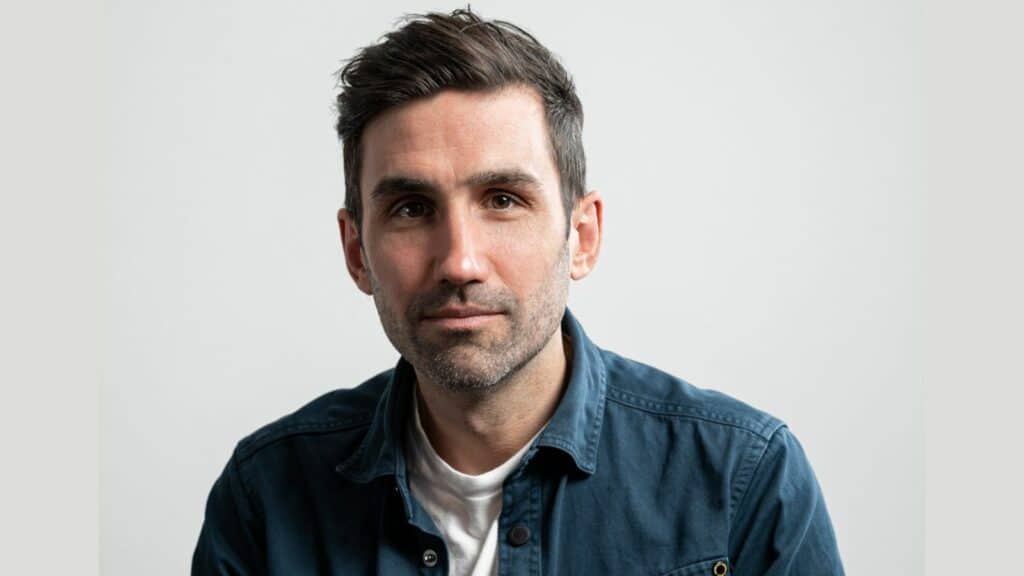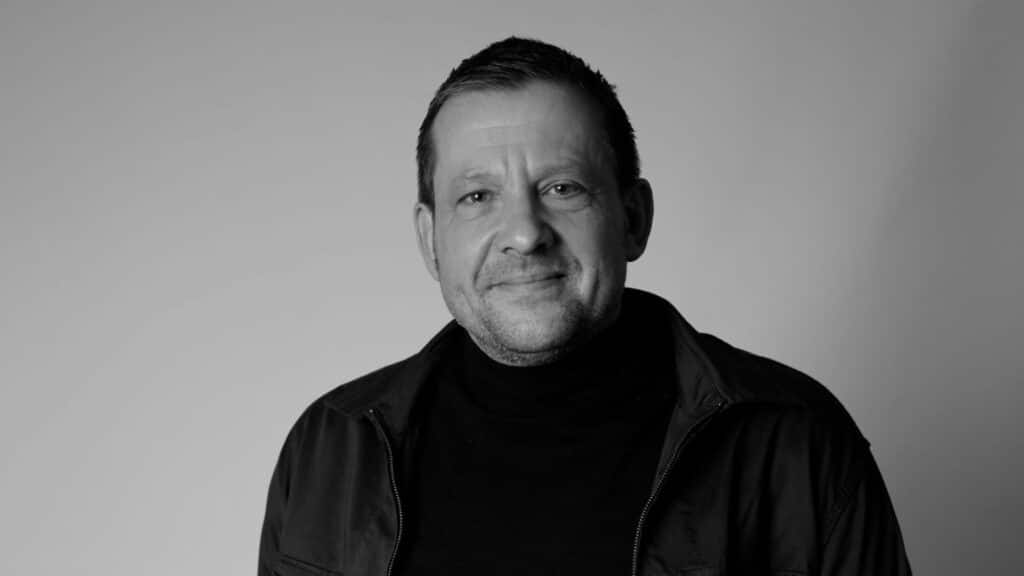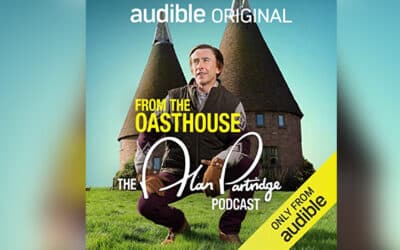From investigative pursuits of fraudsters, robotic fairytales to comical work mishaps, around one in five of us are tuning into a diverse mix of podcasts each week.
20 years on after the first podcast emerged, it might seem like there’s a buzz around a new podcast popping up every day. But data from podcast engine Listen Notes released earlier this year found 219,000 new shows were launched in 2022 compared to 729,000 in 2021. Is it the epilogue for podcasts?
Not according to some of the North’s leading podcast companies.
Founded in 2020, Communicorp-backed Voiceworks Sport launched a dedicated podcast platform Sport Social Podcast Network in February 2021.
The network is now home to popular shows including Seaman Says, The Late Braking F1 and The Joe Marler Show.
For Jim Salveson, director of sport at Voiceworks Sport and radio presenter at XS Manchester, although the inevitable “boom in the industry” has now slowed as hobbyist podcasters start to drift away after dabbling during Covid, the number of new shows being released does not paint a full picture of what’s happening across the industry.
“There’s no other medium that you’d measure the health of the industry by the quantity of content being produced,” he explains. “The massive spike was driven by the pandemic and it has clearly dropped away.”
Another big hitter based in MediaCity is Audio Always, an independent audio production company behind award-winning podcast shows such as Help I Sexted My Boss and Different with Nicky Campbell for BBC Radio 5 Live.
“We hear a lot of chatter asking if there are enough podcasts or have there been a lot of podcasts,” says Paul Fernley, head of partnerships and marketing at Audio Always. “Podcasting is still a relatively small market but I think people are feeling less confident about making something their bedroom, getting it out there and growing a big audience.”
Although those figures might appear “dramatic”, the industry is just “maturing and realigning”, says Mike Carr, CEO at Crowd Network.
Founded by four ex-BBC staffers in 2020, Crowd Network is a rapidly growing audio-on-demand network home to popular podcasts including The Secret History Of Flight 149, Murder in House Two and American Vigilante. The company also launched a dedicated sports division at the end of 2022 and a new branded content offering, Crowd Branded, earlier this year.
“If you drill down into the data, the number of new episodes released hasn’t slowed down nearly as much,” he said. “It’s following the growth trajectory that was in place pre-pandemic. Committed podcasters are continuing to release new episodes at an increasing rate.”
Since launching, the company says its original shows have been downloaded over 25m times, with a staggering 1.5m downloads each month.
Manchester’s growing podcasting ecosystem
From solo podcasters through to collectives such as Effin Hormones to established production companies, there’s a growing, collaborative podcast ecosystem steadily building across the North – especially in Manchester.
“The podcast market in Greater Manchester has just fundamentally changed within the last two years,” explains Fernley. “It’s exciting to see a great podcasting ecosystem in Greater Manchester. We love seeing that growth.”

Working with other podcasting companies in the region, whether it’s teaming up on a project or promoting other podcasts in exchange for cross-promotion, is all because “everyone has the same goal.”
“It really does feel like it’s beyond London as an industry,” he says. “We work quite closely with a lot of our competitors to achieve that.”
But for Carr, the industry still isn’t “big enough to see everyone as competitors.”
“I have conversations with lots of different companies across the country. We use each other’s platforms to promote each other’s podcasts and don’t see that as a problem.
”It benefits everybody. They’re not going to lose audience, everyone will gain audience. That’s an easy way of looking at it.
“The universities in Manchester have been really important in establishing this ecosystem,” he explains, with Crowd Network establishing close ties with Manchester Metropolitan University (MMU), whether that’s though work placements or research projects.
“Lots of students are seeing podcasting as a viable career, it is very progressive. We work with UA92 and think it’s very important as one of the biggest podcast companies in the North to partner with educational establishments. It’s a great way for us to discover potential new hires.”
Voiceworks has supported Crowd Network to monetise its sport content through the Sport Social Podcast Network, with all three companies working closely together.
It shows how collaboration is in the “DNA of the city”, says Salveson. “Manchester has always been a collaborative city. It’s a city with its own identity that celebrates its own culture, creativity and innovation that has always worked together for the greater good.”
But with less start-up podcasts popping up and more established companies growing, maintaining that in the future might pose a challenge for competing podcasting companies.
“People have been exploring this space and discovering what works and what doesn’t work. I think that’s generated this community spirit where people work together, learn from each other and share ideas, because the industry has been taking shape.”

“As soon as you start putting pound signs in front of things, it becomes a bit more cut-throat and more looking after your own but at the moment, it’s a really nice space. Everyone does work together collaboratively, it’s about sharing ideas and trying to move the industry forward as a whole.”
The power of TikTok and growing audiences
“There is much more to recording a show and podcasting than just publishing it. You really have to be prepared to put the time in to grow it and have those strategies in place,” says Carr.
With its ability to convert a casual scroller into a podcast lover thanks to viral clips, TikTok has become an increasingly important tool to fuel the growth of podcasts.
According to Ofcom’s Media Nations 2023 report, young adults and teenagers are now big fans of ‘snackable’ short-form content and are spending an hour a day on TikTok. Tapping into this growing trend has played a key part in the marketing strategies behind podcasts.
“In 2022, we saw the power of TikTok to convert audiences into podcast listeners more powerfully than any other platform,” says Fernley. It’s where Help I Sexted My Boss has seen “huge growth.”
“With Help I Sexted My Boss, we had powerful viral clips that were reaching eight to 10 million views,” he adds. “There’s a lot of strategy behind it. We have in-house video producers, an in-house social media team. We are investing in this space.”
It’s the same over at Crowd Network. “TikTok is a big part of our strategy,” says Carr. “That creation of content and distribution of it across digital platforms from YouTube, TikTok, Twitter or Instagram, depending on what your target audience is, is really important.

“Some people may release podcasts and have a big publicity drive on the week of launch and then forget about it. You have to continually market your podcast. It takes time but you can see the results when you get it right, then you learn from those results.”
As TikTok is a “fairly new player in the podcasting space,” Salveson believes it’s helping the right audience to discover podcasts because of how the algorithm works. “It finds new audiences automatically that are interested in what you’re talking about, so it’s a really interesting player.
“You hear Adam Buxton in the beginning of his podcast refer to his shows as throwing another podcast into the giant podcast bin and it does feel a little bit like that. How can people surface their podcasts from that bin?
“Twitter is a great way to maintain your audience because it’s not all about finding new listeners, you have to keep your current listeners engaged as well. When we’re launching a podcast or when we’re bringing a podcast onto the network, we sit down, we work out who they are, who they want to reach, and importantly, come up with a bespoke strategy for that podcast.”
“It’s the same titles being surfaced again and again”
Improving the discoverability of content was one of the issues Sport Social Podcast Network set out to tackle. With its dedicated network of over 200 podcast partners, the network unites sports content creators to help them grow and monetise their audience.
“If you go on to Apple or Spotify, which is still where most people find their podcasts, it’s the same titles being surfaced again and again,” says Salveson.
“It’s the same faces and big organisations. How do you delve a little bit deeper, because there’s a whole world of content out there if you scratch beneath the service that’s worthy of the attention, but maybe doesn’t have the time that needs to be discovered in the same way?”
For Carr, podcasting is much more than just recording a show and publishing it.
“When we launch a show, we use that network to publicise and inform the audience on what is available. We have strategies in place around social media, video content and trailer slots with other podcast companies. We spend the same amount of time producing a podcast as we do marketing the podcast.”
“It’s a myth that podcasting discoverability is a reason that certain shows don’t grow. It’s because they’re not putting the effort in to grow that podcast. It’s as simple as that.”
Listeners prefer podcasts that feel like a “one-on-one conversation” and more than any other platform, it’s much easier to “spot a phoney,” explains Salveson.
“The most successful podcasts feature people who are genuinely engaging and interested in what they’re talking about, where they build brilliant and really intimate relationships with their audiences that makes them feel like a close personal friend.”
That authenticity proved a hit with Audio Always’ podcast for the BBC’s Different with Nicky Campbell. For the first time last year, Campbell spoke about the abuse he experienced at school in Scotland.

It’s the same for William Hanson and Jordan North on Help I Sexted My Boss, navigating everyday dilemmas in a comedic, relatable way. After the duo first got together at a studio in MediaCity five years ago, its success has led to multiple tours and a book deal.
The “superpower” of podcasting, particularly from a marketing and advertising point of view, is being able to tap into those relationships.
“When you’re recommended a product or a service by a mate, you listen because they’re your mate. That interpersonal communication and believability of the podcast, I think is central to any successful podcasting.”
According to analysis by consultancy Price Waterhouse Coopers (PwC), UK podcasting advertising revenue is set to grow from £37m to £64m by 2025. That’s 16 times more than the £4m it was worth back in 2016.
For the future, brands will have to be “more clever and find ways to unlock audiences through creating content they want to listen to that happens to be supported by a brand,” adds Fernley.
“That’s going to be much more important as we go into the next few years.”














